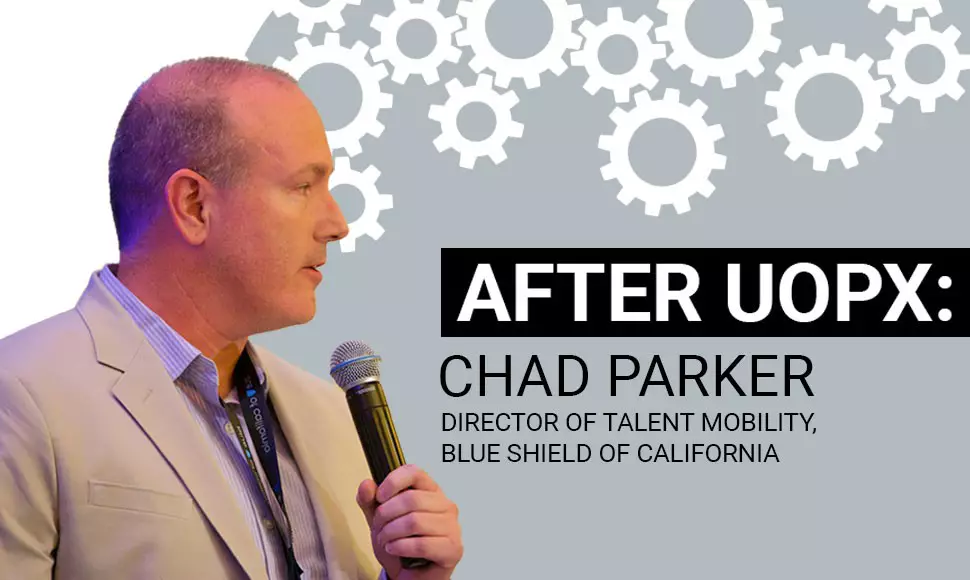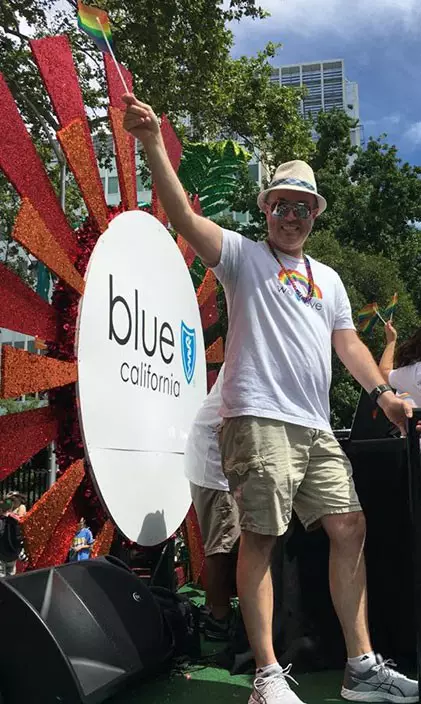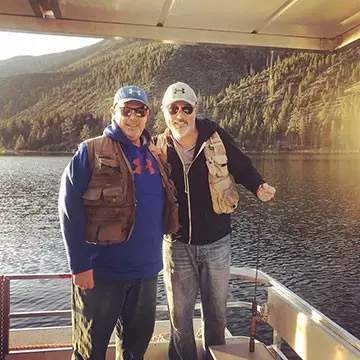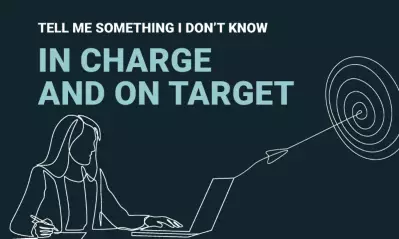Discover more stories in our Alumni Chronicles Magazine!
A rising tide lifts all boats
By Elizabeth Exline
Мэ
Chad Parker is a classic overachiever. Not yet 50, he has already risen through the ranks at Blue Shield of California to become the director of talent mobility. He has helped grow his companyвҖҷs Pride employee resource group (ERG) from a grassroots effort into an established entity. He is the first in his family of origin to earn a bachelorвҖҷs degree (and a masterвҖҷs!). He already has three grandchildren.
Мэ
How did Parker accomplish so much in so little time? вҖңIвҖҷve always been a goal-oriented person,вҖқ he says. His aptitude for optimizing processes, whether at work or in his own life, didnвҖҷt hurt either. HereвҖҷs the backstory.
Мэ
Мэ
Exceeding expectations
According to Parker, his upbringing in Northern California was pretty вҖңnormal.вҖқ He was the second of three sons born to parents who both worked for the government. While neither of his parents ever earned a college degree, they did model the virtue of hard work, and Parker always believed he would go to college someday.
вҖңThere was always a silent expectation that we would continue our education beyond high school,вҖқ Parker says, вҖңand both of my brothers did вҖ” but just never finished. It was important for me to do it, not just because it was a smart thing to do professionally, but to prove to myself I could do it.вҖқ
Мэ
At first, Parker seemed on track to follow his brothersвҖҷ example. He attended a state college unsuccessfully for a semester and then decided to earn his associate degree at a community college to save money. This he accomplished while working full time and getting married when he was 20 years old.
One year later, his first child was born, and Parker needed a flexible university in order to earn his bachelorвҖҷs degree. вҖңAfter having kids, I quickly realized I needed a program that would allow me to go to school in the evening but not require me to be there four to five days a week. This is when I foundМэ°ДГЕМмМмІКҝӘҪұјЗВј,вҖқ he says.
ParkerвҖҷs wife at the time was working in retail, so she and Parker finagled their schedules to juggle work and raising a family. She could work in the evenings on his non-school days and during the day on his school days. Parents and in-laws filled in the gaps.
вҖңBy the time I was 26, I had three children, I had finished my bachelorвҖҷs and masterвҖҷs degrees, and I had come out,вҖқ Parker summarizes. вҖңI was going strong with both my personal and professional journeys.вҖқ
Finding his voice
His personal journey included the life-changing revelation that Parker is gay. He describes coming out as both traumatic and a relief.
вҖңThe immediate feeling of coming out, even though thereвҖҷs a whole mess of new stress that comes with that, the release of the stress of holding that in for years and years is worth it,вҖқ Parker says.
With the exception of an older brother, ParkerвҖҷs family proved supportive. This, in turn, allowed Parker to flourish both personally and professionally.
вҖңSince coming out in 1999, itвҖҷs always been important to me to show up as my authentic self and to be a role model for other LGBTQ employees,вҖқ Parker says. вҖңGrowing up in the вҖҳ80s and вҖҳ90s, I didnвҖҷt see people like me in leadership roles and certainly not вҖҳout.вҖҷ Once I came out, it was just so important for me to make sure others saw that I was successful and didnвҖҷt have to hide who I was, all in the hope of providing some courage to others to do the same.вҖқ
Мэ
One way heвҖҷs accomplished this goal was to build his companyвҖҷs Pride ERG from a grassroots organization into a robust group that numbers, Parker estimates, between 500 and 1,000 LGBTQ+ members and allies. Parker co-led the ERG for two years and is currently an active participant and advisor.
His work with the Pride ERG is one way ParkerвҖҷs co-worker, Sonya Wade, sees him as different from other colleagues.
Wade has worked with Parker for a decade, and sheвҖҷs seen firsthand how seriously he takes his commitment to building a positive workplace culture.
вҖңHe has a personal mission to ensure everyone feels they have a home and a safe place at Blue Shield,вҖқ Wade explains. вҖңYou can find him sitting on a panel for Pride discussions, volunteering in the community and, most importantly, being a resource for those who need it most.вҖқ
Мэ
Putting values to work
His commitment to mentoring others, combined with his finely honed aptitude for optimizing processes, makes Parker exceedingly effective in his current role at . He oversees four teams that manage programs to develop leaders internally, facilitate mentorship, and assess and coach executive performance.
It is a role that Parker finds supremely rewarding. вҖңI know how much IвҖҷve appreciated the opportunities afforded to me, and I love that I have a role and team that enable this type of work every single day,вҖқ he says.
While Parker relishes his work in human resources, itвҖҷs not where he started out. His background is in operations: He earned his Bachelor of Science in Management at °ДГЕМмМмІКҝӘҪұјЗВј and then his MBA elsewhere, and he worked in banking before joining Blue Shield 11 years ago. Through the Pride ERG, however, he connected with the head of HR at Blue Shield and took a lateral move into the department as a program manager.
вҖңI was able to utilize my operations background and my newfound HR background to help coach leaders,вҖқ Parker explains. вҖңIt just has progressed nicely. Now IвҖҷm helping develop leaders throughout the entire organization.вҖқ
And according to Wade, heвҖҷs doing it very well. вҖңHe is one of the most authentic, genuine leaders I have ever worked for,вҖқ she says. вҖңHe is fair, thoughtful, engaging and a great mentor.вҖқ
Мэ
Reaping the rewards
Today, Parker and his husband of six years (and partner for 13) have settled into a comfortable life together. Both work from home, their dogs deciding each day whether to go to the law side of the house (ParkerвҖҷs husband is an attorney) or the HR side. They spend time with ParkerвҖҷs children and grandchildren. They travel, read and go fishing.
Theirs, in short, is the sort of comfortable life that can come with hard work, discipline and, in ParkerвҖҷs case at least, an education.
вҖңItвҖҷs very humbling to be the first in your family to graduate college,вҖқ he says, вҖңbut it also taught me that I can do anything. If I can spend six to eight [years] getting my degrees, I could spend six months working on [an industry] certification or three months on a project. Making commitments to my professional development has always been something IвҖҷve owned, and IвҖҷve never waited for someone else to help me. Completing my degrees early in life helped me with this.вҖқ
Read more alumni storiesМэon the blog!










